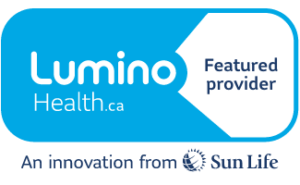At Springboard, we have always believed that creating a safe and creative space for self-discovery is crucial to moving forward in life. But what does self-discovery mean when talking about attention deficit hyperactivity disorder (ADHD)?
In the context of ADHD, we frame self-discovery using seven principles:
1. Finding the hidden you
ADHD shouldn’t define who you are; it’s just shorthand for a particular set of attributes. We help you dig below that diagnostic label to look more deeply at your inner strengths, your core values – your true identity. And as you begin to see who you really are, frustration gives way to hope.
2. Understanding your brain
At Springboard, we introduce you to the basic mechanics of the brain: how neurotransmitters work and affect your ability to use your prefrontal cortex to execute tasks. (We teach young clients as well, using simpler language and concepts.) With a clear understanding of how the brain affects behaviour – and what makes your brain different from many – you can better appreciate its impact on your decision-making and your overall identity.
3. Assessing your health
In our holistic coaching approach, we look at your ADHD across all dimensions of health and wellness: physical, social, emotional, academic or occupational health. Through a series of in-depth interviews, we gain an understanding of where you are now, where you want to go and how you’ll get there. And as we gauge the impact of ADHD on your wellbeing, we develop a personalized blueprint for change and hope to create a change catalyst.
4. Following your lead
Our coaching sessions are highly collaborative. Focusing on your life experiences, we start by breaking down the cognitive blockers that are at the root of your ADHD. Together, we peel back the diagnostic layers to identify small, manageable steps that will move you closer to your goals. And as you’re able to take more control of your ADHD, you begin closing the gap between your intentions and actions.
5. Separating from ADHD
By understanding and accepting your ADHD, you make it less personal. What once seemed to define you becomes an obsolete version of yourself that you can now leave behind. From there, as you make this separation on your terms, you gain the confidence to speak openly with people you trust about your ADHD. And as you lower the walls you’ve used to protect yourself, you become more and more empowered.
6. Counting on your team
ADHD doesn’t go away. But with the encouragement of our Springboard team, backed by your family and friends, you can make a great step forward in your ADHD treatment journey. No more shame or guilt; no more defensive or evasive behaviour. Just the comfort of knowing you’re supported by caring people who appreciate who you are, see how well you’re navigating challenges and applaud your efforts to take charge of your life.
7. Creating the right space
Rethinking your environment at home, school or work is critical to sustaining your new relationship with ADHD. Learning to pick your battles, as a family, or even just adding a tweak to the morning routine can make all the difference. In other cases, what’s needed is a big shift, like changing jobs or moving to a new city. Either way, it’s crucial to feel that your surroundings support how your brain works best.




